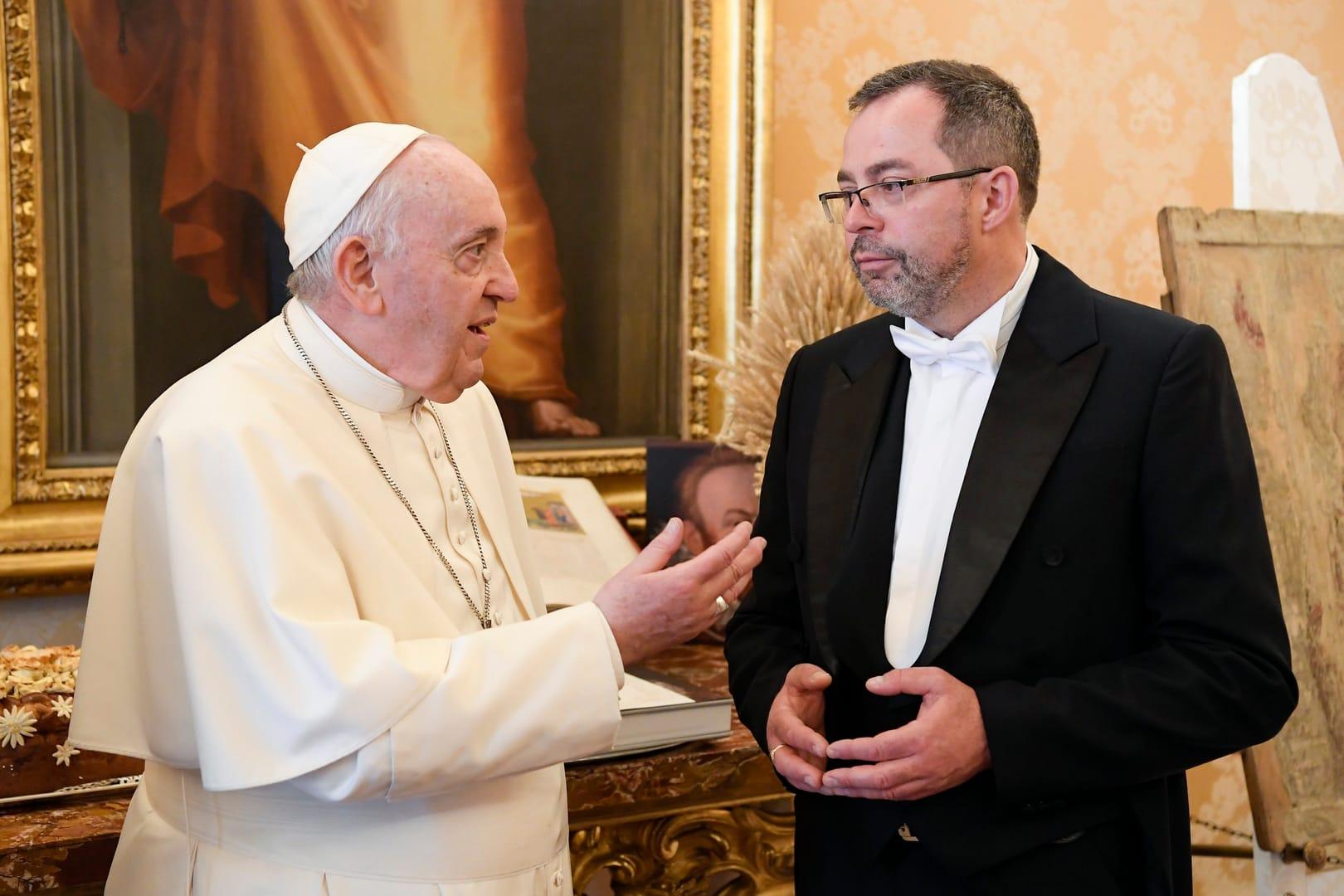ROME – On Ukraine’s independence day, which coincided with the six-month anniversary of Russia’s invasion, Pope Francis managed the rare feat of both reassuring Ukrainians by referring to the “madness” of war, and also enraging them by calling the daughter of a prominent Russian ultra-nationalist an “innocent” casualty.
At the end of his Wednesday audience on Aug. 24, Francis prayed for the “beloved” Ukrainian people who “have been suffering the horror of war.”
He asked for prayers for the children of both the aggressor and the country invaded, because “so many Ukrainian and Russian children have become orphaned, and orphanhood has no nationality; they have lost their mothers.”
“I think of so much cruelty, so many innocents who are paying for the madness, the madness of all sides, because war is madness and no one in war can say, ‘No, I am not mad’,” Francis said. “The insanity of war. I think of that poor girl who was blown up by a bomb that was under her car seat in Moscow. The innocent pay for war, the innocent!”
The reference was to Darya Dugina, who was killed Aug. 20 by a car bomb near Moscow. She was the daughter of Aleksandr Dugina, a prominent Russian philosopher known as “Putin’s brain,” who had pushed the “denazification” of Ukraine as a justification for the six-month old invasion, and, at a memorial service, his daughter was lauded as a “warrior for the sovereignty of Russia.”
Ukrainian ambassador Andrii Yurash, who was present at the audience on Wednesday with a large group of Ukrainians, many of them refugee children living in Italy since the war began, described Pope Francis’s words regarding Dugina as “disappointing.”
“Today’s speech of the pope was disappointing and made me think about many things: You can’t talk about the aggressor and the victim, the rapist and the raped in the same categories; how can you call one of the ideologues of Russian imperialism an innocent victim? She was killed by the Russians as a sacrificial victim and is now on the shield war [sic],” Yurash wrote on Twitter.
In a second tweet, he defined Ukraine’s independence day as one of “deepest joy,” and it is “paradoxical, but in [a] very tragic way, [the] godless war started by Russia on Ukrainian land,” made it possible for Ukrainians to realize its own “essence and to say bye-bye forever to Rusky Mir.”
Rusky Mir, which translates as “Russian World,” is a concept that forms part of the ideology used by Russian President Vladimir Putin to justify his war against Ukraine.
Yurash was not the only Ukrainian to express disappointment over the pope’s remarks; several of those present in the audience at the Paul VI Hall voiced their frustration with tears in their eyes.
However, to some Ukrainians in attendance, the pope’s remarks were less important than his gestures. For example, he spent several minutes with a small group of refugee children representing the more than 200 who have been welcomed by the Catholic Church in Italy since the war began.
“So much joy and so much emotion in the eyes of the children, but also in the eyes of the pope,” Father Marco Pagniello, director of Caritas Italy, told SIR, the news agency of the Italian bishops’ conference.
“Next to the joy, in the pope [we saw] so much anguish: He repeated to us so many times, at different moments, his anguish about this war, which is madness,” Pagniello said. “A madness reaping so many innocent victims because, as the pope reminded us, it is always the innocent who pay the highest price of a war, with so much pain and suffering.”
This is not the first time the pontiff’s remarks on Ukraine have caused uproar and hurt among Ukrainians.
In April, a Ukrainian and a Russian woman were invited to carry the cross together during one of the stations of the traditional Way of the Cross led by Pope Francis in the Colosseum, a choice blasted both by Yurash and by the head of the Ukrainian Greek Catholic Church.
Similarly, in May Pope Francis insisted he could not go to Kyiv without first going to Moscow to try to negotiate peace, and he suggested the war started because of NATO, which he said was “barking at Putin’s door” and caused Russia to “react badly and unleash the conflict.”
In his remarks Wednesday, the pontiff also expressed his concern over the Ukrainian nuclear plant that is being held hostage by Russia in Zaporizhzhia, calling for “concrete steps” to be taken both to end the war and “avert the risk of a nuclear disaster in Zaporizhzhia.”
During the audience, the pontiff also denounced those who profit from war and the arms trade, calling them “thugs who kill humanity. And we think of other countries that have been at war for a long time.” He named Syria, Yemen, and the Rohingya Muslim community.
Follow Inés San Martín on Twitter: @inesanma












